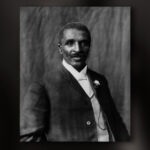I have an outdated cell phone; it’s several versions old. It doesn’t have the latest hardware or capabilities, and it always needs to be recharged. My old phone is a constant reminder of a timeless lesson: I need regular recharging too.
At some point during your pastoral ministry, you’ll experience fatigue. Neither faithfulness in small things nor the godly ambition to do great things will protect you from weariness. No amount of training nor academic preparation will insulate you from getting tired. Our need for regular recharging is a foundational reality of our walk with the Lord. David demonstrates this truth and God’s care for us in Psalm 23:3 when he writes, “He restores my soul.”
Limitations of Sheep
When David says, “The LORD is my shepherd,” (v. 1), he assumes the position of a sheep. Sheep have considerable limitations. They can drown from drinking water because their noses are so close to their mouths. Sheep also have a skittish and easily worried temperament, poor eyesight, and no natural defenses against the host of vicious natural predators that are rarely far away.
We too have an easily worried disposition. Even faithful ministers can feel overwhelmed by the challenges in our lives. We can lack proper spiritual eyesight—our perspective is easily clouded by our desires and ambitions or colored by our culture’s popular sentiments. When our limitations are laid alongside the challenges that await around us, it’s clear we’re unable to guarantee our own physical, emotional, and spiritual safety. Even shepherds are like sheep and need the Shepherd’s care.
Faithfulness of the Shepherd
One of the most compelling components of Psalm 23 is what David communicates about what the Shepherd knows. The Good Shepherd knows sheep need green grass and still water. He understands his sheep’s needs. The sheep never have to tell the Shepherd they’re thirsty, hungry, or tired. He knows.
Even shepherds are like sheep and need the Shepherd’s care.
This makes our relationship with God meaningfully different from any other relationship. The algorithms must learn or be taught how to best respond to our searches and requests, but God already knows what we need. Our friends, family, and even fellow pastors must learn how best to respond to our emotional and relational needs, but God already understands us. Our Shepherd doesn’t only know our needs; he abundantly supplies them.
Scripture never says our walk with God will be without trouble, without the experience of realizing our feebleness. But God is able to renew us, and he sovereignly allows us to experience circumstances that empty us of our strength and our reliance on it. When our souls need to be restored, we’re reminded of our need for One greater than ourselves. We’re reminded we need what only God can provide. When we’ve exhausted our stores of endurance, God is willing to restore us and remind us of his constant presence and faithfulness.
How We Should Respond
Pastor, when you grow weary, you must see that a minister’s weariness isn’t a failure of faithfulness. Weariness results from the reality of our limits. We must acknowledge those limits.
If we’re dishonest about our imperfections and insufficiencies, we’ll never be able to appreciate or enjoy God’s perfect sufficiency. So when we feel the need to recharge, we should interpret our low battery as a call to come to the Shepherd.
The Shepherd can be found. We find him in meditation, when we take time to reflect on how he has supplied our needs and answered our pressing questions in the past. He reminds us of what we’ve overcome and that in him we have sufficient resources for the days ahead. We can find him in prayer, where we confess our needs, acknowledge the temptation to lean on our own understanding, and cast our troubles and daily anxieties on him because he cares for us.
Between Now and Forever
The image of the shepherd carefully and wisely caring for his sheep’s needs not only teaches us about God’s attention to our temporal needs but also gives us a picture of how God supplies our spiritual needs.
We should interpret our low battery as a call to come to the Shepherd.
In an increasingly digital culture, it’s never been easier for us to feel a sense of distance or disconnection from others, from our purpose, and even from God. We wrestle to find meaning and purpose in life and ministry. Yet Psalm 23 reminds us that God is ever present with us. His presence in our lives affirms his ultimate purpose for us.
The psalm teaches us about God’s sufficiency, which extends into eternity: “Surely goodness and mercy shall follow me all the days of my life and I shall dwell in the house of the LORD forever” (v. 6). When we rest in God’s Word, we’re forever established in life with God beyond green grass and still waters. We’re his. We’ll experience his love and peace and enjoy fellowship while being nourished by his presence forever.
While we live between now and forever, we pastors grow weary. But God is still with us. Thanks be to God, he restores our souls.
“The Most Practical and Engaging Book on Christian Living Apart from the Bible”
 “If you’re going to read just one book on Christian living and how the gospel can be applied in your life, let this be your book.”—Elisa dos Santos, Amazon reviewer.
“If you’re going to read just one book on Christian living and how the gospel can be applied in your life, let this be your book.”—Elisa dos Santos, Amazon reviewer.
In this book, seasoned church planter Jeff Vanderstelt argues that you need to become “gospel fluent”—to think about your life through the truth of the gospel and rehearse it to yourself and others.
We’re delighted to offer the Gospel Fluency: Speaking the Truths of Jesus into the Everyday Stuff of Life ebook (Crossway) to you for FREE today. Click this link to get instant access to a resource that will help you apply the gospel more confidently to every area of your life.






























